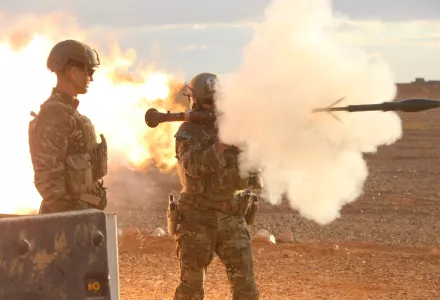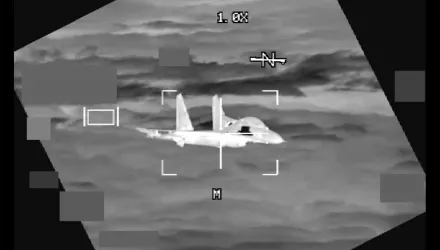
Creating Awareness and Educating the Force on the Effects of Blast Traumatic Brain Injury
Executive Summary
“Operator Syndrome,” especially blast TBI (bTBI) and PTSD, are destroying the lives of special operators at an alarming rate. For the purposes of this paper, operators are Green Berets, SEALs, MARSOC Raiders, Combat Controllers, Pararescue, Explosive Ordnance Disposal Technicians, Special Mission Units or those that may accompany special operations forces regularly in training or on missions. The USSOCOM must continue to aggressively address bTBI. The authors acknowledge that the Nation and the command have invested heavily in developing strategies to address this issue; however, thus far, the efforts seem disjointed and have failed to mitigate the impact on special operators. These well-intentioned programs, policies, and research efforts are not making it to the team rooms or the ready rooms of our Ranger Platoons, Green Beret “A-Teams,” SEAL Platoons, Marine Special Operations Teams or other special mission units. There is no time to waste—senior leaders, policy makers and researchers must translate the current knowledge into actionable programs. There is no doubt that if provided the right tools, equipment and education, the senior non-commissioned officers will undoubtedly alter training protocols, inform their teammates and force positive change.
This paper has two primary objectives. First, it will support the argument that blast related TBI is uniquely different from the more recognized brain injury known as chronic traumatic encephalopathy (CTE) injury associated with impact trauma and therefore requires a different approach to both diagnosis and treatment. Second, it will provide recommendations for mitigating the effects of bTBI on the readiness and long-term health of special operators.
Key recommendations will include identifying blast pressure thresholds, developing imaging technology, and blood markers to diagnose bTBI. It calls for the DoD to institute and sustain “baseline” health surveillance to detect patterns of injury and health distress early, promote awareness for the Center for Neuroscience and Regenerative Medicine Brain Donation Awareness Program, and to establish an active Cross-Functional Brain Consortium. An additional recommendation will include changes to training plans that continue to prepare operators for combat but reduce their exposure to blast trauma.
Contents:
Executive Summary
1. Introduction
2. “Operator Syndrome”
3. Blast Related Traumatic Brain Injury
4. Humanizing the Impacts
5. Current USSOCOM and DOD Efforts to Address Warfighter Brain Health
6. Policy Recommendations
7. Conclusion
Download the full paper:
Stewart , Warren and Kevin Trujillo. “Modern Warfare Destroys Brains.” July 2020







